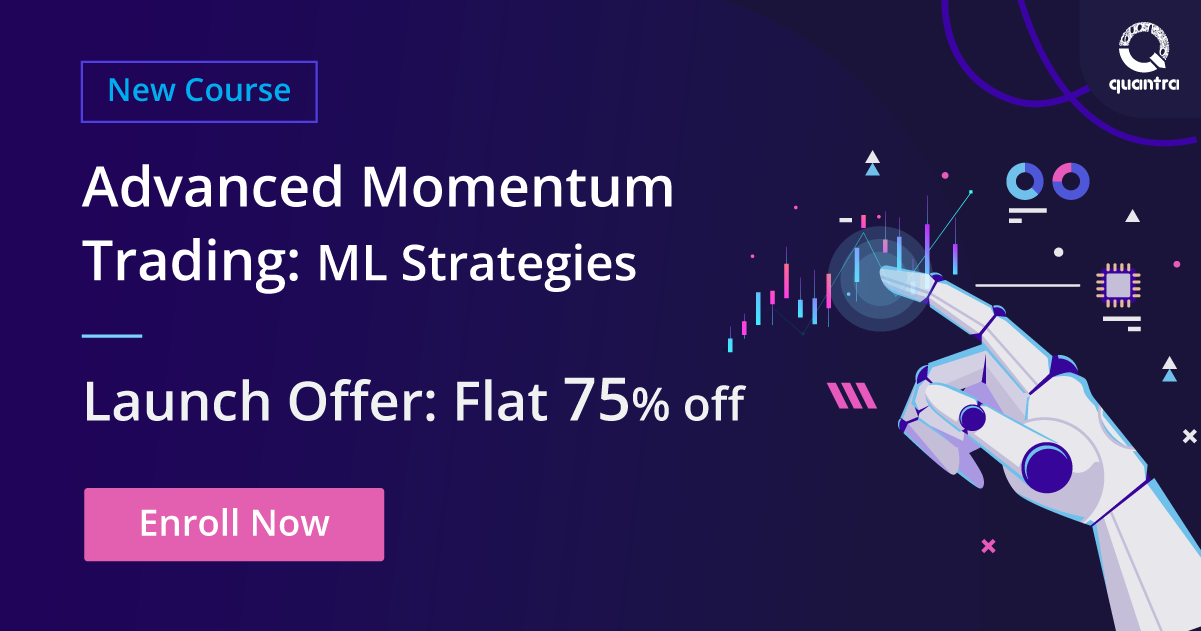
Being a banker means a disciplined life, regularity, and a process-oriented mindset, it also means good financial acumen. Combine all of that with a keen interest in trading securities and digital frameworks and you have just the right mind-frame required to become a quant.
Investment Bank, Retail/Financial Services, Treasury & Securities Services, Asset Management which aspect of the banking sector do you identify with? For me, it was asset management. My short stint as a wealth manager introduced me to certain facets of a banker’s life:
Targets
Achieving targets is crucial to existence but even if you don’t, the world is not over, tomorrow is a new day. You can avail some excellent stress management tips from a banker.
Competition
Everyone is competition and everyone is an ally. As a banker, you learn that nothing is permanent. To co-exist, collaboration is crucial and you soon learn to grow above petty grievances.
Trust
Trust is the most crucial aspect of the banking industry, the sector runs on the trust customers put in them. People form ties for mutual benefits but in most cases the strength of these bonds goes far beyond regular banking transactions.
Speed
Banking is the money making business, usually the most critical element in a person’s life. Every customer demands transparency and fastest possible speed in all transactions.
If you aspire to be a quant, the life learning as a banker serves as an added advantage. The experience makes one a result oriented and methodological person which works wonders for quantitative trading. You understand the implications of overexploiting human instincts as well. Hence you understand the need to automate certain processes.
When it comes to trading, asset managers are experts on long-term securities while high-frequency quantitative traders harness opportunities that occur for a very brief time period of milli or microseconds. The margin of each trade is small, which is compensated by fast speed and large volumes. The thought of trading at milliseconds first amazed me then I observed data depicting variation in price movements. A casual observation of the price variations and a high-level understanding of Algo trading is enough to give you a clear idea on how well you can employ this slight movement in the money markets. If you are lucky you can make huge profits on these variations. If you are pragmatic you will use Algo trading instead of luck.
The two technical aspects required for being a professional Algo trader are computational and financial skillsets. On the computational side, you need to be able to work with a contemporary programming language. A good working knowledge of the trading platforms that connect with external algorithms to send buy and sell orders to the exchange is another mandatory requirement. On the financial side, understanding of various trading strategies is essential because these strategies form the base for your algorithmic.
The first aspect or most important benefit of algorithmic trading is that it minimizes behavioral biases and human emotions. Enabling a very practical and result oriented approach to trading. Imagine being able to rise above sentimental decisions in all your professional interactions. If trading is your profession, we have algorithmic trading to help realize this dream.
Even the most pragmatic amongst us have faltered when it comes to cutting emotions from your trade. Holding on to stocks for sentimental value or false hope even after it has lost value in the market is just one example. And it’s not just about the sentimental aspects. Since we tend to believe in proven practices, often people tend to hold onto particular strategies that worked in the past irrespective of the current market data.
That is where trading systems employed for quantitative and algorithmic trading play a major role. An Algo trader needs to look at old values, derive certain parameters from history and also contemplate on the existing market data. To cater to that, a conventional system would have a historical database to store the market data and tools to use that database. The analysis would also involve a study of the past trades by the trader. Hence another database for storing the trading decisions as well. Last, but not the least, is a GUI interface for the trader to view all this information on the screen. The entire process of automating data mining, crunching, depiction, display, and trading is done to an accuracy that you cannot go wrong.
Algo trading can serve as a very profitable switch for data analysts, financial advisors and traditional traders who have a technical background. We spoke to one of the EPAT™ participants who happens to be an engineering graduate and comes from a rich trading and finance background. Aman Saxena did his bachelors in Mechanical Engineering from NIT, Surat, studied computational finance from Carnegie Mellon University and holds a master’s degree in Financial Engineering from Nanyang Technological University. He worked as a trader in various organizations before enrolling for the Executive Programme in Algorithmic Trading at QuantInsti®. Post the course he is working as a Quant Manager in HSBC.
Here’s what Aman has to say about his experience with QuantInsti®, ‘The classes in QuantInsti® were concise, to the point and offered various examples from real life which were illustrated in a commendable manner. I got a good insight into Algo trading and would like to get back to respective mentors for consultation.’
In case you would like to know more about the Algo Trading business, do look at some of our blogs written extensively on the subject.
Next Step
If you want to learn various aspects of Algorithmic trading then check out our Executive Programme in Algorithmic Trading (EPAT™). The course covers training modules like Statistics & Econometrics, Financial Computing & Technology, and Algorithmic & Quantitative Trading. EPAT™ is designed to equip you with the right skill sets to be a successful trader. Enroll now!


